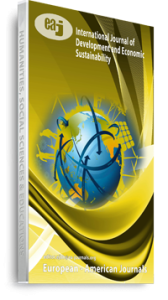Trade elasticities are very crucial for both economic forecasting and international policy analysis. However, the value of trade elasticities has remained the subject of diverse opinion in most international economic policy debates. This is because results from most empirical studies in this area are still mixed. Therefore, this paper uses import substitution model framework to estimate the price and income elasticities of import demand in Nigeria for the period 1970 – 2013. We use Autoregressive Distributed Lag (ARDL) bound testing proposed by Pesaran et al. (2001) to study the long run relationship between variables of interest. The results of the unit root test based on ADF and PP provide justification for the use of ARDL bound test as the variables were either I(0) or I(1) and none is I(2). The cointegration results show that there is a long run relationship between import demand and the chosen explanatory variables, thus all the variables move together in the long run. The estimated long run coefficients show that the price and income elasticities of import demand in Nigeria were about 0.03 and 0.55 respectively during the period covered. This implies that the long run import demand in Nigeria has been price-and income-inelastic since the sizes of the coefficients of real GDP and relative prices were less than unity and among the explanatory variables studied, real GDP was the main determinant of import demand in Nigeria. Furthermore, the long run coefficient of domestic prices which is also regarded as the cross-price elasticity of import demand with respect to home made goods was about 0.0062 and statistically insignificant, thus there is evidence of imperfect substitution between foreign made goods and domestically produced goods. The results from the short run dynamics of the model suggest that about 67 percent of the disequilibrium between the long term and short term import demand is corrected each year. We therefore conclude that the use of currency devaluation as an import substitution tool is not validated by our results, whereas the use of higher taxes and interest rates as a tool of expenditure switching policies should be expected to have limited impact on Nigeria’s trade balance.
Keywords: Import demand, Income elasticity of import, Price elasticity of import

